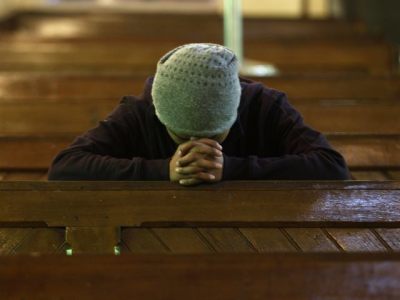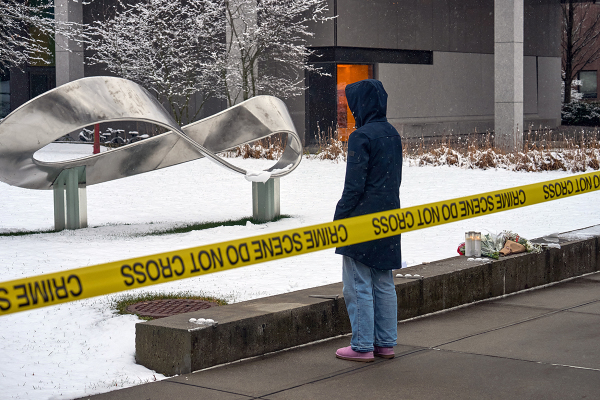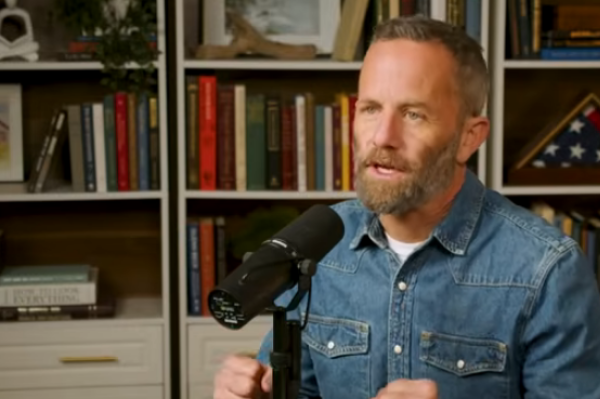Do you have the fear of David Brainerd?

Theologian R. C. Sproul tells the story of coming down the stairs in his house one day and stopping midway because a terrifying thought suddenly came into his head: “What if I’m not saved?”
On the one hand, such a consideration seems odd for a man with heavyweight degrees in theology, including a doctorate, and countless years of ministry. Given all that, maybe you think he’d have settled such a question long ago.
On the other hand, formal education in theology and service doesn’t equal salvation. Plus, we’re commanded in Scripture to “Test yourselves to see if you are in the faith; examine yourselves!” (2 Cor. 13:5) and “make certain about His calling and choosing you” (2 Pet. 1:10).
Has that ever happened to you? Have you ever wondered if you really possess saving faith? I’ll admit I’ve asked the question of myself not just once, but multiple times.
Now on reading that, some of you may be tempted to admonish those of us who’ve had reservations about our salvation. Don’t you know the devil is attacking you with doubt, you say.
Maybe.
Whatever the reason, for some, the fear can be crippling as it was for Sproul in his take-your-breath-away, stairway moment. But his anxiety-laced experience pales in comparison to the panic that overtook the man the Christian faith looks to as the model for missionaries.
And if it happened to him, it could happen to any one of us.
The gold standard for missionaries
David Brainerd was born on April 20, (Easter Sunday) 1718 in Haddam, Connecticut. Only 29 years later, he died of tuberculosis at the great theologian Jonathan Edwards’ house on October 9, 1747.
Just 8 of those years were spent as a Christian and only 4 were devoted to his missionary work. Yet his life (recorded in his diary and published by Edwards) was so powerful that the famous preacher John Wesley said: “Let every preacher read David Brainerd May I Never Loiter on My Heavenly Journey carefully over the ‘Life of Brainerd’”.
You’d imagine someone like him would never falter with respect to his saving faith, but Brainerd records in his diary that things got so bad at one point he: “Dreaded more than ever to see myself in God’s hands, and it made me more opposite than ever to submit to his sovereignty; for I thought He designed my damnation.”
“Designed my damnation”? That’s some serious fear for a Christ disciple like Brainerd. He goes on to say:
“It was the sight of truth concerning myself, truth respecting my state, as a creature fallen and alienated from God, and that consequently could make no demands on God for mercy, but was at his absolute disposal, from which my soul shrank away, and which I trembled … But the truth was, I could see no safety in owning myself in the hands of a sovereign God and could lay no claim to anything better than damnation.”
Pause just for a moment and let that sink in. The model for missionaries “could see no safety in owning myself in the hands of a sovereign God.”
Why would such a man feel that way?
Brainerd tells us a little later in his diary what happened to him, and it’s the same thing that occurs to plenty of other believers: he began to fixate on his sin and failing works before God.
Maybe you’ve had a similar experience. Your wrestling match with sin hasn’t gone so well lately and you privately think to yourself or confess to a trusted friend: “You don’t know what I’ve done/said/thought/desired and how often that’s happened.”
If that’s you right now, let me offer up some good news.
First, let’s start with a reality check. Grieving over sin before God isn’t something unbelievers do. As Christian apologist J. Warner Wallace said in response to a question on the subject, “Before Christ, I didn’t worry about sin; sin was my life.”
In other words, the mere fact the sin subject concerns you is a good sign that your faith is real.
Next, the cure for such anxiety is the same one discovered by Brainerd who began to focus on God’s glory and saving power, which then resulted in this epiphany:
“At this time the way of salvation opened to me with such infinite wisdom, suitableness, and excellency, that I wondered I should ever think of any other way of salvation; I was amazed that I had not dropped my own contrivances and complied with this lovely, blessed, and excellent way before. If I could have been saved by my own duties, or any other way that I had formerly contrived, my whole soul would now have refused. I wondered that all the world did not see and comply with this way of salvation, entirely by the righteousness of Christ” (emphasis in the original).
The apostle Paul puts Brainerd’s anxiety-killing truth like this: “He made Him who knew no sin to be sin on our behalf, so that we might become the righteousness of God in Him” (2 Cor. 5:21).
So, if the fear of David Brainerd ever comes over you, remember this biblical truth along with something said by a pastor a long time ago whose name escapes me: “The determining factor in your relationship with God is not your past but Christ's past.”
And that being the case, you, as a Christian, couldn’t be safer.
Robin Schumacher is an accomplished software executive and Christian apologist who has written many articles, authored and contributed to several Christian books, appeared on nationally syndicated radio programs, and presented at apologetic events. He holds a BS in Business, Master's in Christian apologetics and a Ph.D. in New Testament. His latest book is, A Confident Faith: Winning people to Christ with the apologetics of the Apostle Paul.





















